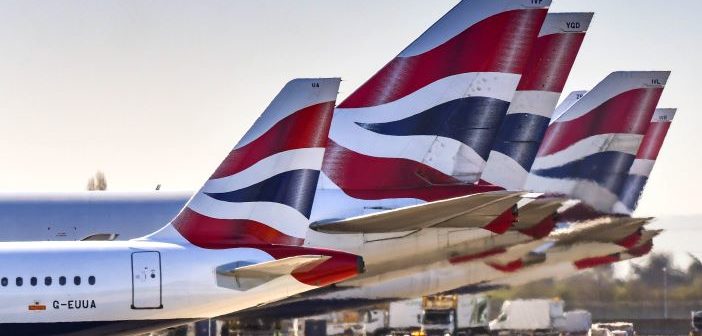Enhanced Measures Unveiled to Safeguard UK Airline Passengers

Passengers on all airlines flying to, from and within the UK could soon be better protected when travel disputes arise, if new proposals published by the UK Government go ahead. The proposals are intended to strengthen the UK’s aviation sector and support the Prime Minister’s aim to grow the economy by increasing passenger confidence.
The plans include giving stronger enforcement powers for the regulator and opening access to faster and cheaper dispute resolution for passengers, which could ultimately lead to improved standards for all passengers on flights operating to and from the UK.
And the proposals really are for all those passengers, including the sometimes underrepresented demographic of passengers with reduced mobility (PRMs). The Government proposal states. ‘Following concerning reports of disabled passengers having their wheelchairs damaged, the measures will mean they can get full and fair compensation for damage caused on UK domestic flights. Airlines will also be encouraged to waive this cap for international flights. At present airlines are not required to cover the full cost of repairs, even if the equipment is damaged while in their care.’
The UK Transport Secretary, Mark Harper, said of the proposals: “I recognise the work airlines do around the clock in order to provide a good service to customers, and today’s proposals set out how we can go even further for travellers.
“I’ve heard really concerning examples of passengers’ wheelchairs getting damaged and being left without full and fair compensation. It’s important that everyone can travel with confidence. A thriving aviation sector is good for passengers, good for the industry, and will grow the economy,” added Harper.
Ground handlers will also be offered new training by the UK’s Department for Transport to make sure that mobility equipment such as wheelchairs is handled properly, with the aim of avoiding such incidents altogether.
The UK Civil Aviation Authority view
Paul Smith, joint-interim chief executive at the UK Civil Aviation Authority, said of the proposals: “We welcome the announcement from government to enhance the rights of air passengers, alongside strengthening the enforcement powers of the Civil Aviation Authority and making ADR mandatory. We have long called for a stronger enforcement toolkit to bring us in line with other regulators. The plans announced today achieve this and will help ensure that the Civil Aviation Authority is better equipped to hold industry to account in meeting their obligations to passengers.“
“Everyone should have equal access to air travel and the planned changes to compensation when mobility equipment is damaged will help to improve this,” Smith added. “We encourage UK airlines to adopt the proposals immediately for all flights, not just domestic flights, in advance of legislation being introduced.”
“In addition, ADR provides an essential service to allow passengers to escalate a complaint. Many airlines already provide this option to passengers on a voluntary basis, but some do not. We encourage all airlines who don’t already to introduce this immediately.”
The DPTAC view
Tanvi Vyas, aviation group lead at DPTAC (Disabled People’s Transport Advisory Committee) said of the proposals: ‘’We welcome the Government plans to step up and legislate to provide better safeguards for disabled travellers on domestic flights. Providing compensation for damaged mobility equipment is certainly a move in the right direction to increase consumer confidence. Understanding the international element to this and encouraging waiving this for international flights is crucial for disabled travellers to travel with assurance and consistency.
“When equipment is damaged, this doesn’t just scupper the short-term plans of the trip itself. An understanding of the longer-term impact physically, emotionally and financially is really important. This is why I hope offering free REAL training and the creation of a ground handlers training video raises the bar, enhances existing knowledge, and sharpens minds to understand the gravity of the situation when damage occurs. The training aims to reinforce the importance of diligence and care by sharing the real-life impact of damage.’’
A little background
The proposals form the Government’s response to its aviation consumer policy reform consultation, published in January 2022, and aim to improve the UK’s standards for air passenger travel.
Airlines will be required to be a member of an approved Alternative Dispute Resolution (ADR) body, giving consumers a way to escalate certain complaints that cannot be settled between them and the airline without the need to go to court.
At the moment there are two ADR providers in the UK and airlines can join voluntarily. Under the new proposals, all airlines flying to, from and within the UK, would have to join, giving customers access to this dispute route, regardless of which airline they fly with. This could help people who are struggling to get refunds when they are entitled to them.
The measures also aim to strengthen the UK regulator’s powers to further protect both consumers’ and airlines’ interests. As the UK’s aviation regulator, the Civil Aviation Authority (CAA) works to ensure consumers are protected and treated fairly. Under the new plans, the CAA would have increased powers to enforce consumer protection law, for example issuing fines for breaches, where appropriate.
Following feedback received during the consultation, the Government will undertake further work on how compensation for passengers facing disruption from cancellations and delays.
